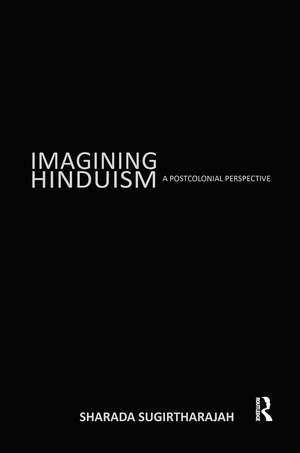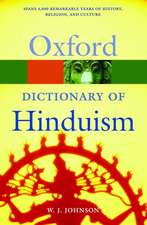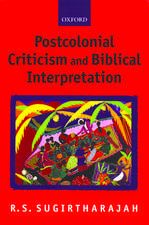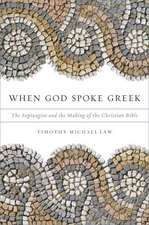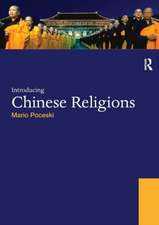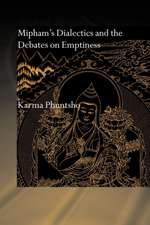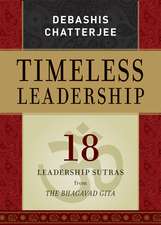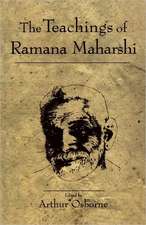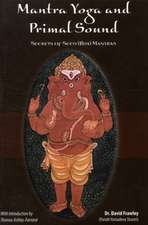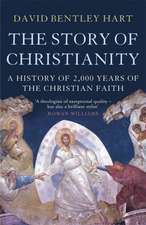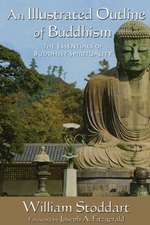Imagining Hinduism: A Postcolonial Perspective
Autor Sharada Sugirtharajahen Limba Engleză Hardback – 25 sep 2003
As the first comprehensive work to bring postcolonial critique to the study of Hinduism, this is essential reading for those seeking a full understanding of Hinduism.
| Toate formatele și edițiile | Preț | Express |
|---|---|---|
| Paperback (1) | 331.14 lei 3-5 săpt. | +19.10 lei 10-14 zile |
| Taylor & Francis – 25 sep 2003 | 331.14 lei 3-5 săpt. | +19.10 lei 10-14 zile |
| Hardback (1) | 1108.37 lei 6-8 săpt. | |
| Taylor & Francis – 25 sep 2003 | 1108.37 lei 6-8 săpt. |
Preț: 1108.37 lei
Preț vechi: 1351.68 lei
-18% Nou
Puncte Express: 1663
Preț estimativ în valută:
212.08€ • 222.03$ • 175.49£
212.08€ • 222.03$ • 175.49£
Carte tipărită la comandă
Livrare economică 05-19 aprilie
Preluare comenzi: 021 569.72.76
Specificații
ISBN-13: 9780415257435
ISBN-10: 0415257433
Pagini: 192
Dimensiuni: 156 x 234 x 20 mm
Greutate: 0.43 kg
Ediția:1
Editura: Taylor & Francis
Colecția Routledge
Locul publicării:Oxford, United Kingdom
ISBN-10: 0415257433
Pagini: 192
Dimensiuni: 156 x 234 x 20 mm
Greutate: 0.43 kg
Ediția:1
Editura: Taylor & Francis
Colecția Routledge
Locul publicării:Oxford, United Kingdom
Notă biografică
Sharada Sugirtharajah lectures in Hindu Studies at the University of Birmingham.
Recenzii
'An insightful and extremely well-written book ... essential reading for any scholar.' - Journal of Religious Values
'[The] book delivers what it sets out to do... It is clear, modest, and serves its purpose well. Students of post-colonialism will find it very helpful.' - Journal of Contemporary Religion
'[The] book delivers what it sets out to do... It is clear, modest, and serves its purpose well. Students of post-colonialism will find it very helpful.' - Journal of Contemporary Religion
Cuprins
Introduction Defining the other Postcolonial criticism as an interrogative tool About the volume 1. William Jones: Making Hinduism safe Biblical Jones Gods of Indian and European heathens Primitive monotheism to Biblical monotheism Hindu texts made secure Hindu chronology through biblical lens Romantic Jones Discovery of Sanskrit literature East and West - philosophical affinities Hindu Goddesses and colonial enterprise Juridical Jones Oriental and colonial pursuits Hindus and their laws Hindu laws - Sublime and ridiculous Justinian model for Hindu laws Jones and the Pandits Concluding remarks 2. Max Müller: Mobilizing texts and managing Hinduism Territorial and intellectual conquest The Veda as an aryan testament The Veda - celebrated and caricatured Fragile monotheism Restoring, fixing and privileging the Veda Sanskrit, self-definition and spiritual kith and kin Aryan theory: implication and appropriation Aryan masculinity and Aryan past Eulogizing Aryan character Fall from Aryan glory Comparing religions: Hinduism in relation to christianity Classifying sacred texts Redacting the sacred books of the East Concluding remarks 3. William Ward's virtuous Christians and vicious Hindus Negating a tradition Hindu texts: Corrupted and corrupting Christian monotheism and Hindu God and Goddesses Feminized Hinduism and muscular christianity Corrupt Hindus Lost in darkness with no sense of history, time or place Hindu women as hapless victims Concluding remarks 4. Decrowning Farquhar's Hinduism Classifying the Other Trivializing texts Hinduism through Western Protestant lens Hindu 'idolatry' and Christian monotheism Hindu indifference and Christian engagement Hindu myth, Christian truth Linear time, cyclic time Christianizing Hinduism Concluding remarks 5. Courtly text and courting Sati Sati as Voluntary Sati as a positive construct Textual warrant: Resurrecting an eighteenth-century Sanskrit text Two voices framing Sati: Julia Leslie and Mary Daly Liberating texts: Roop Kanwar's Sati from Srivaisnava and other textual practices Liberating female texts and voices Concluding remarks Conclusion Replicating Orientalist constructions New Orientalists: Fashioning a monolith Hinduism Textualizing Hinduism Politicizing Hinduism Reframing Hinduism and forging an identity References Index
Descriere
Imagining Hinduism is an indispensable guide to an immensely significant new understanding of the Hindu faith - that it exists largely as a construct of the Western imagination.
